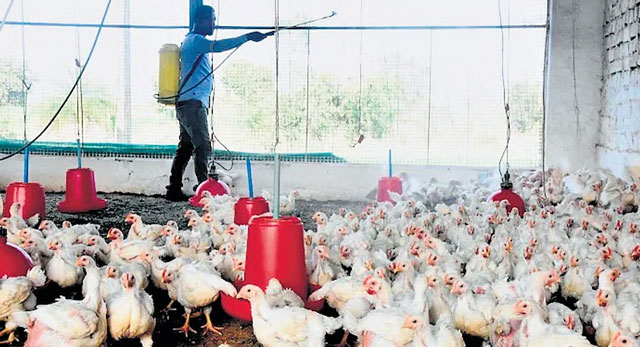Daijiworld Media Network- Bengaluru
Bengaluru, Aug 13: Researchers at the Indian Institute of Science (IISc) have warned that the H5N1 bird flu virus is developing mutations that could make it more capable of infecting humans. The study, led by Dr Kesavardhana Sannula, Assistant Professor in the Department of Biochemistry, found that the currently circulating 2.3.4.4b clade of H5N1 has acquired genetic changes linked to higher human adaptive potential. According to Project Associate and first author Ranjana Nataraj, the mutations detected are similar to those found in past pandemic influenza strains, posing a growing risk.
The team also discovered that virus strains adapting to certain animals, such as foxes, show a greater potential to infect humans than those adapting to cattle. H5N1, first detected in birds three decades ago, carries H5 haemagglutinin and N1 neuraminidase proteins that aid its entry and spread in hosts. Over the years, it has crossed into humans, causing sporadic infections.

By analysing over 43,000 viral protein sequences from birds, mammals, and humans, the IISc researchers identified rapid genetic changes in key viral components such as the polymerase complex, nucleoproteins, and haemagglutinin proteins — all critical for adaptation to new hosts. The 2.3.4.4b clade is already infecting across species and has caused unprecedented mortality in birds and mammals. With signs of adaptation to non-human mammals, experts warn that the threat to humans could intensify. The researchers have called for enhanced and proactive surveillance to track and contain potential outbreaks before the virus can fully adapt to human transmission.